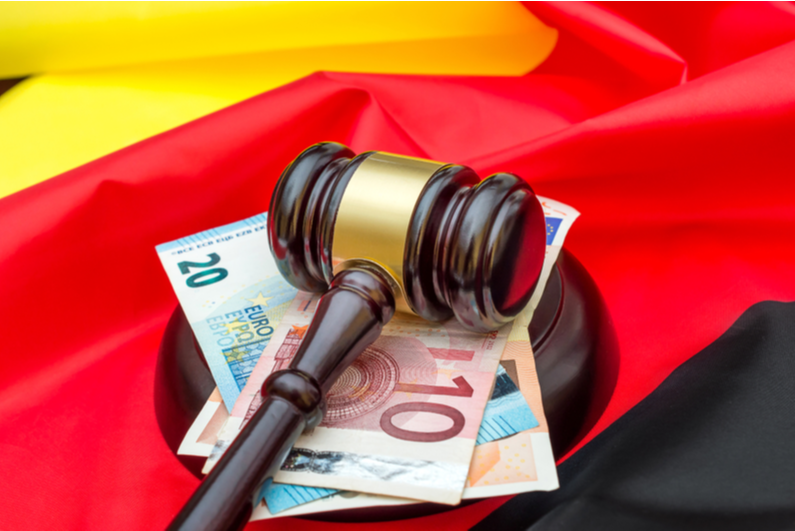Starting a wave
The High Court of Frankfurt in Germany has ruled that an online casino customer can recoup roughly €12,000 ($12,775) in losses incurred while playing.
claimed that the losses were incurred in 2017
As first reported by German magazine Spiegel, a man from the Hesse region cited problem-gambling laws in his suit. He claimed that the losses were incurred in 2017, four years before German officials launched the country’s legal online casino market through the Fourth Interstate Treaty on Gambling, or Der Glücksspielneuregulierungsstaatsvertrag (GlüNeuRStV).
This decision, delivered against an unnamed Malta-based operator that is part of gambling group Entain, could set the precedent for a slew of future lawsuits.
Dealing with GlüNeuRStv and the legal system
The gambler won a first-stage appeal in the District Court of Giessen (Hesse) as judges cited distinctions between legal and illegal gambling in pre-GlüNeuRStv times. Spiegel first identified the defendant as international sports betting and gambling company Entain Plc., formerly GVC Holdings. Entain is listed on the London Stock Exchange and is a part of the FTSE 100 index.
Entain defended itself by saying that it operated within reasonable boundaries during Germany’s “transitionary period,” which lasted over a decade and left German gaming operators dry as the Lander decided on Interstate Treaty laws.
stated that it interacted with the prosecutor within Malta’s laws and the extent of its gambling license
The unnamed Entain property also stated that it interacted with the prosecutor within Malta’s laws and the extent of its gambling license, as applied by EU regulations. In addition, it claimed that it provided the gambler with a “tick box” of his legal standing.
This statement points to the lack of clarity between operators and German law at the time, for while unlicensed operators were still considered illegal, they were tolerated as long as they operated within certain restrictions.
Despite the confusion, judges ultimately found that the gambling site did not do enough “pointing out that the game was illegal in Germany.”
“The judges also happily argued that the company itself had ‘emphasized the special difficulty of the legal situation’, but at the same time accused the plaintiff of recklessly ignoring a legal situation that was allegedly easy to research,” Spiegel said in its report.
Handling the decision
The Frankfurt court’s decision was the first Lander-based ruling on the controversial matter.
operators are still frustrated by the licensing framework
Despite the progress towards a clearer understanding of the topic, operators are still frustrated by the licensing framework. Current stipulations dictate operators receive a two-thirds majority vote by the Glücksspielkollegium, the market’s temporary licensing unit made-up of 16 Bundesländer members.
People in the industry hope the GlüNeuRStv regime’s online casino laws and licensing issues are resolved by 2023. Saxony-Anhalt, one of Germany’s 16 federal states (singular “Bundesländ”), is attempting to establish Glücksspielbehörde as the national gaming regulator.
GlüNeuRStv-licensed operators are still waiting for Saxony-Anhalt to disseminate the area’s first online casino and poker licenses.




